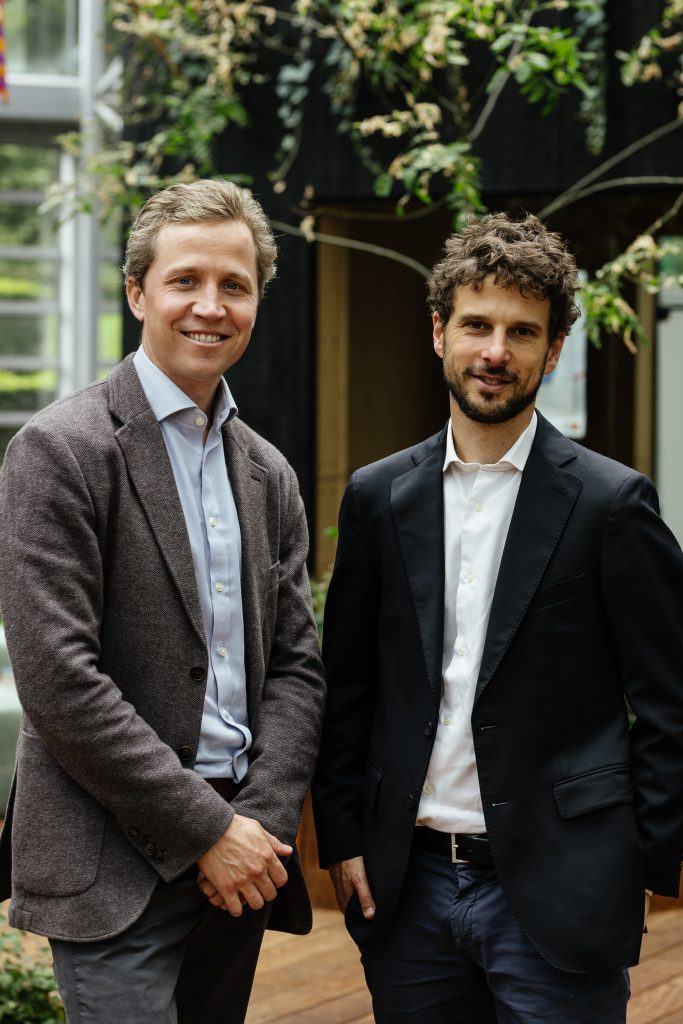A month ago Mathieu Poma and Quentin Werrie announced the launch of Mycelium, with a mission to raise institutional-grade capital to invest in European lands and help farmers rebuild and repopulate soil while generating uncorrelated yet competitive returns to investors. Their goal is to create model farms at scale that produce nutritious food and share data to drive meaningful change in farming communities.
This month they introduced their first project in Italy: a large-scale regenerative hazelnut project that will act as a pilot and example for the future. The project features:
- 1500 hectares
- 15 years off-take with a major FMCG
- Uncorrelated and competitive returns for investors
- Ambitious regenerative agriculture outcomes, including improved soil health, biodiversity and water.
The founders of Mycelium bring a wealth of experience to this endeavor. Quentin Werrie is a passionate advocate for the agri-food sector on a mission to restore landscapes who combines entrepreneurial experience from an insect protein startup with a banking background at BNP Paribas and private equity expertise at Buysse & Partners, a Belgian investment holding active in Europe and Latin America. The past few years he as embarked on a journey to learn all about regenerative agriculture, landscape restoration, and rewilding projects across the South.
Mathieu Poma is a Belgo-Italian investment professional with 20 years of experience in private investment spanning venture capital, growth, buyouts, and fund of funds. He previously worked at Sofina, a Brussels-based family office managing €10 billion in assets, and NextWorld, a San Francisco-based firm financing a foundation dedicated to combating climate change and supporting regenerative agriculture.

RFSI News had the opportunity to speak with Quentin about the launch of this new operation.
RFSI: How did you find your way from more traditional finance and investment to regenerative agriculture investment?
Quentin: The story began when Mathieu Poma and I met in 2016 while visiting Maison Chapoutier, an internationally acclaimed vineyard renowned for its respect for soils and terroir, where winemaking involves observing and guiding nature in the most respectful way. During the pandemic, a collective awareness emerged regarding the correlation between the triple planetary crisis and society’s disconnection from nature. At that time, both Mathieu and I were working in private equity and began reading articles that highlighted effective solutions, such as Nature-Based Solutions, including Regenerative Agriculture, to restore ecosystems at scale.
In 2022, I deepened my understanding of these topics while overlanding through South America with my family, exploring various ecosystem restoration projects, including large-scale farms adopting Regenerative Agriculture practices. Upon my return, we learned that hundreds of thousands of farms in Europe would need to be transitioned to new owners by 2030. This led us to confront the urgent question: who will feed our children? Aging farmers are grappling with soil depletion and dwindling profit margins. It became evident to both of us that investing in the next generation of farmers is crucial to rebuilding our Natural Capital.
RFSI: Can you tell us a little about the gap you identified and are seeking to fill with Mycelium?
Quentin: To ignite transformation and accelerate the adoption of regenerative practices in agriculture, there is a critical need for both capital and expertise. Additionally, successful agriculture projects must be professionally managed, utilize state-of-the-art techniques, and demonstrate profitability. While regenerative agriculture focuses on enhancing soil health, investors often struggle to find suitable assets that meet their return objectives, reporting standards, and governance requirements.
This insight motivated Mathieu and I to co-found Mycelium to bridge the gap between investors and farmers. We are raising institutional-grade capital to invest in European land, enabling farmers to rebuild and regenerate our soils while providing investors with uncorrelated yet competitive returns. Our goal is to create model farms at scale that produce nutritious food and
RFSI: Tell us a little more about the SPV you have launched for a hazelnut project in Italy. Why Italy and hazelnuts? And what do envision for the land, farmers, and investors with this project?
Quentin: Mycelium supports an ambitious large-scale hazelnut project targeting 1,500 hectares across Lazio and Tuscany, Italy, with 200 hectares already secured. Italy is renowned for its high-quality hazelnuts, making it an ideal location for this project, as the demand for sustainably sourced hazelnuts continues to grow.
The project benefits from an exceptional multi-year offtake agreement with a FMCG manufacturer, ensuring stable cash flows over the long term. We are implementing state-of-the-art data monitoring and agronomic techniques to establish an ambitious soil and landscape regeneration plan, which we envision as a role model for the entire hazelnut value chain.
This regenerative hazelnut initiative has the potential to capture carbon and enhance biodiversity at scale, all while providing recurring cash flows for investors. Our vision is to demonstrate that sustainable practices can yield significant benefits for the planet and deliver attractive returns for investors, thus proving that doing good for the environment can also do well financially.
RFSI: Anything else you want to share?
We are committed to having a strong agenda focused on biodiversity—both above and below ground—and nutrient density. Mycelium is currently raising a €10 million SPV for our first project, and we are developing a solid pipeline of additional projects across Europe. We are pleased to see that our first project is gaining traction among both traditional and impact-oriented investors.
If you would like to know more, reach out to Quentin here.
